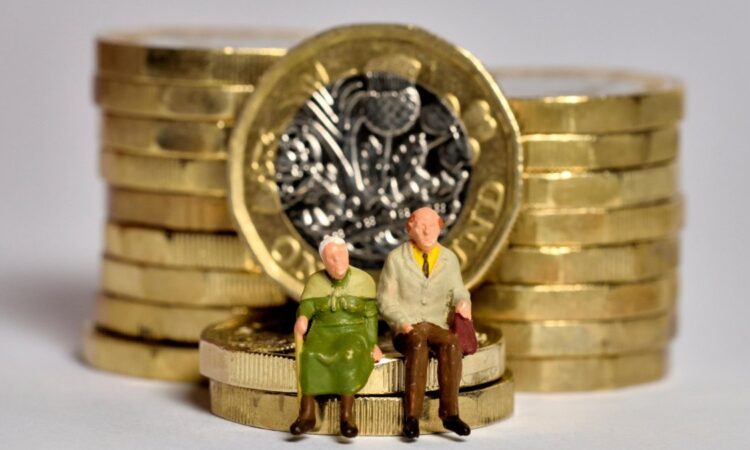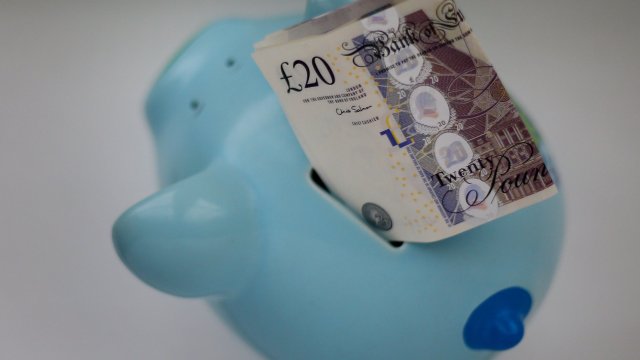
Hundreds of thousands of retirees will be hit by unexpected tax bills a year after they have spent their state pension money, it has been revealed.
The combination of the freezing to tax thresholds and a substantial increase to the state pension has led to many more pensioners being dragged into paying income tax for the first time.
Analysis has revealed that 400,000 of the 650,000 pensioners paying tax for their first time will be hit with demands of around £346 each the year after they receive their pension money.
This suggests the typical person has a pension of £275 a week. If all 400,000 people have this sort of bill, collectively they will have a combined bill of £138m.
Since they don’t have private pensions – which would have deducted the tax owed to HMRC before giving them pension funds in the same year – they will receive tax demands the following year according to LCP, the pension consultancy.
Steve Webb, partner at LCP said: “Millions of pensioners have been dragged into the tax net for the first time in recent years, primarily because of the multi-year freeze on tax thresholds.
“Any pensioner with a pension next year over £242 per week will have tax to pay, and if they do not have a private pension through which the tax can be collected, they may need to set some money aside for an unwelcome tax demand.”
Who will be affected and how will the tax be taken?
For pensioners who have a state pension and a private pension, HMRC will collect any money due through the tax code applied to the private pension.
However, growing numbers of pensioners will be over the tax threshold based purely on the fact their state pension has increased so rapidly.
There is no automatic way of collecting the tax they owe as state pensions are paid in full before the deduction of tax.
In cases such as this, HMRC will operate a system known as “simple assessment”, but pensioners may not be aware of this and they are at risk of getting unexpected tax demands.
Under the “simple assessment”, the DWP will notify HMRC at the end of a tax year how much state pension each individual has received.
If this takes the individual over the income tax threshold, there will be a tax bill to be paid.
Therefore, HMRC will write to the pensioner after the end of the tax year telling them they have not paid the tax due on their state pension and requiring them to make a payment before 31 January the following year.
This means that pensioners could have received – and spent – all of their pension during one financial year – only to receive a tax bill on that pension the following year.
How many people will be affected?
Anyone with a state pension over £242 per week will owe some income tax.
According to the DWP, as of November 2020 more than 2.3 million pensioners had a state pension of £195 per week or more, and taking account of state pension increases since then, these people would now have a pension over the tax threshold next year.
While some of these pensioners will have private pensions which can be used to collect any tax due, others will rely on state pensions because they did not make alternative private provision.
LCP estimates that around one in five of these pensioners, or more than 400,000, may have no other source of income from which HMRC can collect the tax owed.
This is the group who may need to consider setting aside some of their state pension each month so that they have the funds available to pay a future tax bill.
As these new taxpayers have not previously had to fill in a tax return, or had many dealings with HMRC, they may be surprised to receive a letter out of the blue demanding tax.
A Treasury spokesperson said: “We have taken three million people out of paying tax altogether since 2010 through raising the personal allowance, and the Chancellor has said he wants to lower the tax burden further but sound money must come first.”
State pensions were increased by 10.1 per cent this April in line with the triple lock which says it will rise by the highest out of 2.5 per cent, wage growth or inflation.
Next April it is expected to increase by 8.5 per cent, as a result of wage growth being the highest of the three options, with September’s inflation figure, which is used to decide the triple lock, coming in at 6.7 per cent.
This means the full basic state pension will increase from £156.20 per week to £169.48 and the full state pension will rise from £203.85 to £221.18.
It also means many will be in the basic rate tax band as they will receive over £12,570 a year, a figure that has been frozen since 2021/22. It is at this point that they will have to pay 20 per cent in income tax.







